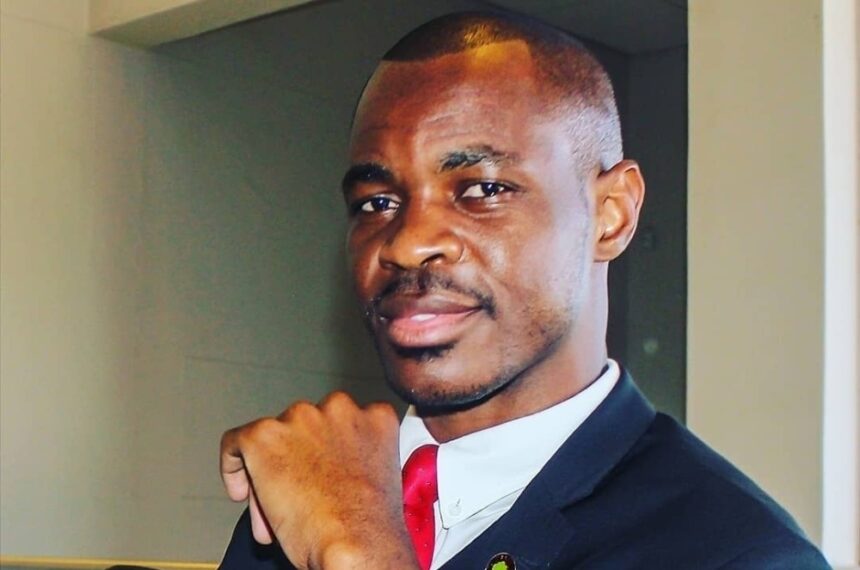THE City of Windhoek (CoW) Chief Executive Officer (CEO) Moses Matyayi has proffered ideas that local authorities should adopt if they are to witness positive service delivery transformation and thrive for their communities.
In offering a solution, Matyayi called for a radical overhaul of service delivery by looking into alternate models that would provide cost-effective services.
“A radical transformation of the service delivery by local authorities is driven by initiating robust programmes,” he noted.
“The programmes initiated by local authorities to accelerate service delivery should yield positive results and bring impact to service delivery.
“To ensure above-and-beyond-service delivery, the local authorities should continuously explore other alternative models to deliver value-for-money services to its residents.”
Matyayi was recently speaking to delegates in Zimbabwe, where he further advised local authorities to focus on infrastructure development by taking strong action.
He said the World Bank Urban Development Overview report in 2023 reported that 50% of the global population currently lives in urban areas and has forecast that by 2045, the urban population across the globe will increase.
Equally, according to the new UN report by the United Nations Department of Economic and Social Affairs, 2,5 billion people will be living in cities by 2050.
Matyayi also noted that urbanisation was inevitable, adding that there is a need for responsive strategy in addressing infrastructure development, optimised systems, and responsive procedures and policies.
“This trend denotes that urbanisation is inevitable. The growth trend must be accompanied by a commensurate level of adaptive leadership, and professionalism, within the excellence to provide the desired impact-based outcome,” he said.
“This calls for a rapid, yet responsive strategy in addressing the needs most probable of infrastructure development, optimised systems, and responsive procedures and policies.”
Matyayi implored the implementation of innovative ideas to simplify the billing system, noting that the City of Windhoek has empowered citizens through the SMS reading system, which encourages accuracy and transparency in billing.
“This self-service option promotes accuracy and transparency. It reduces discrepancies and eliminates disputes on actual consumption versus billed consumption. It also gives customers the feeling of being more involved and in control of their usage.
He said the City of Windhoek has decentralised the billing system by creating three billing cycles that have helped in decongesting the cash halls during cut dates.
Last month, Matyayi assured the City’s stakeholders, partners, and the residents that for now and in the foreseeable future, the capital city is “a going concern”.
“We are actively crafting a financial recovery plan aimed at securing long-term financial sustainability. Our focus is not only on developing a robust strategy but also on ensuring its effective execution to achieve our goals in line with the strategic plan 2022- 2027,” the CEO stated.
As reported by a local daily, Matyayi was responding to the Auditor General (AG) Junias Kandjeke’s conclusion of a qualified audit opinion for the 2020/2021 financial audit report that was recently tabled in Parliament. In the report, Kandjeke cautioned that the City does not have a solid plan on how it is going to turn around commercial insolvency and its current deficit-making position in the foreseeable future. The report was compiled in September 2023.
The City of Windhoek municipality accumulated a cumulative loss of N$3.2 billion between 2012 and 2022, a N$300 million wage bill, a N$100 million annual employee vehicle scheme, N$70 million losses on bus services, and a lifelong post-retirement medical aid scheme for which it spends N$27 million a year. The latter amount has been described as a growing liability, as it depends on the number of employees who go on retirement.
Matyayi was appointed as CEO of CoW last year and assumed office in August having served as CEO of the Otjiwarongo municipality and also the Otavi Town Council from 2010 to 2020. Matyayi’s leadership skills have been honed through his various roles, including his tenure as the president of the Namibian Association of Local Authority Officials since 2021. He has also served as the chairperson of the Central North Regional Electricity Distributor board of directors and a board member of the Namibian Broadcasting Corporation (NBC).



Leave a Reply